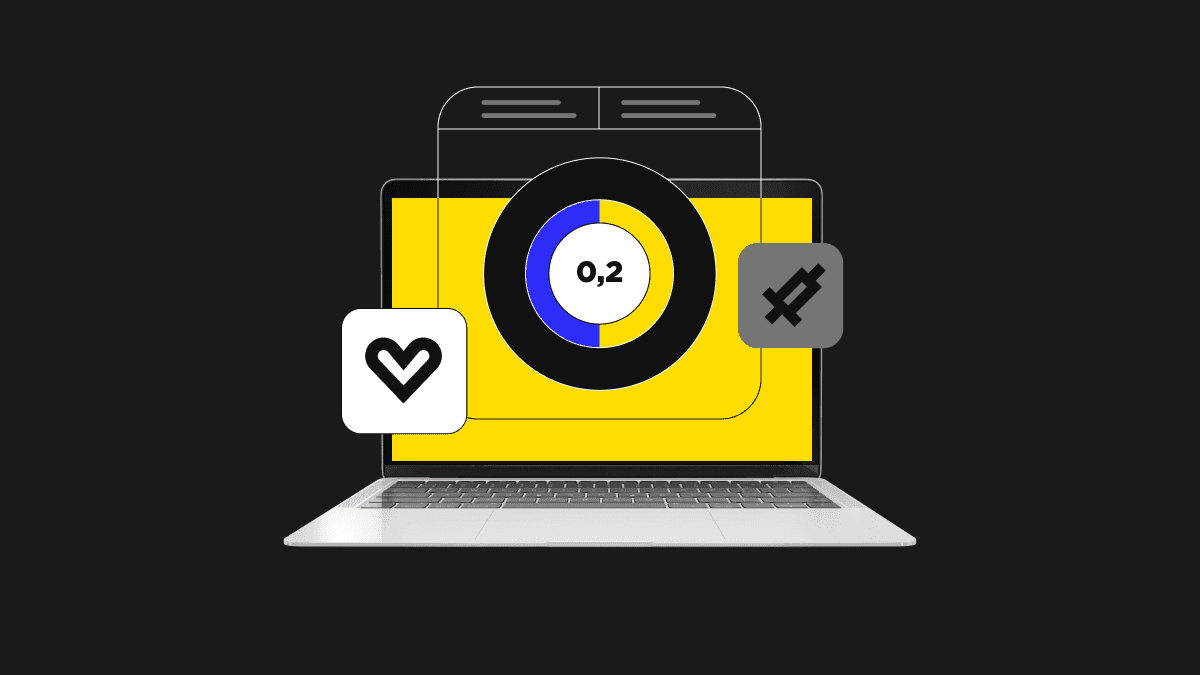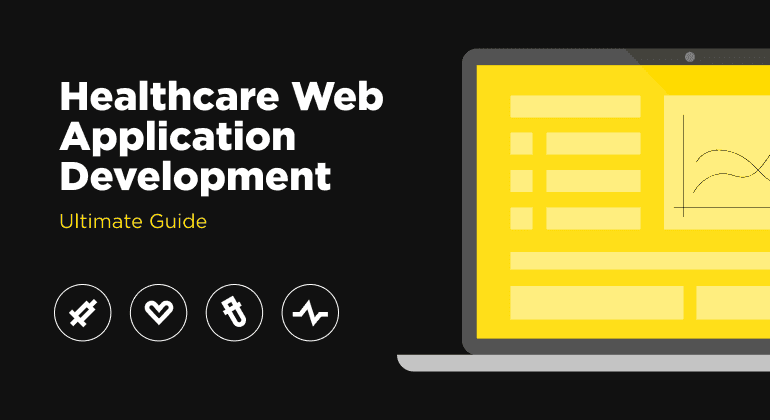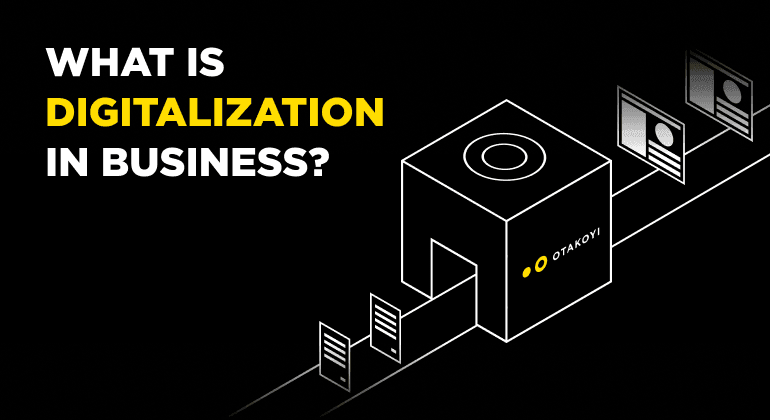If you are among the people who are looking for ways to optimize inventory systems at medical organizations, you’ve reached the right address! This guide is precisely about ways, challenges, types, and benefits of implementing such automation solutions. In healthcare, keeping track of supplies and medications is key to giving patients the best care possible. No matter the size of the facility, having the right items on hand is essential. Good inventory management isn’t just about staying organized - it directly affects patient well-being, meets regulations, and helps everything run smoothly.
Moreover, according to the report "Hospital Asset Tracking and Inventory Management Systems Global Market Report 2023", the global hospital asset tracking and inventory management systems market grew from $25.28 billion in 2022 to $27.27 billion in 2023 at a compound annual growth rate (CAGR) of 7.9%.
This article will explore ways to optimize inventory management, including the latest technology and techniques that can enhance how it’s done. We’ll also highlight why effective inventory management is so crucial in healthcare settings.
What Does Healthcare Inventory Management Entail?
The process in charge of managing the inventory, purchases, orders, payments, and other activities for your health system is called healthcare inventory management, or supply chain management (SCM). It is important to mention here that the Harvard Business Review discovered that by implementing a strategic and streamlined supply chain process through healthcare inventory management software, hospitals, and health systems have the ability to save 17.7% or $11 million per facility annually. Sounds exciting, don’t you think?
For healthcare organizations that need to order and dispense prescription drugs, sell health products to patients, or maintain track of medical supplies, an effective inventory management system is essential. Inventory management techniques, when used in large organizations, help shield your business from product and financial losses by maintaining an accurate and up-to-date record of your medical products and supplies.
Defining the Types of Hospital Inventory Management Systems
The main inventory management strategies include periodic and perpetual types. So, let’s discover more about both of them.
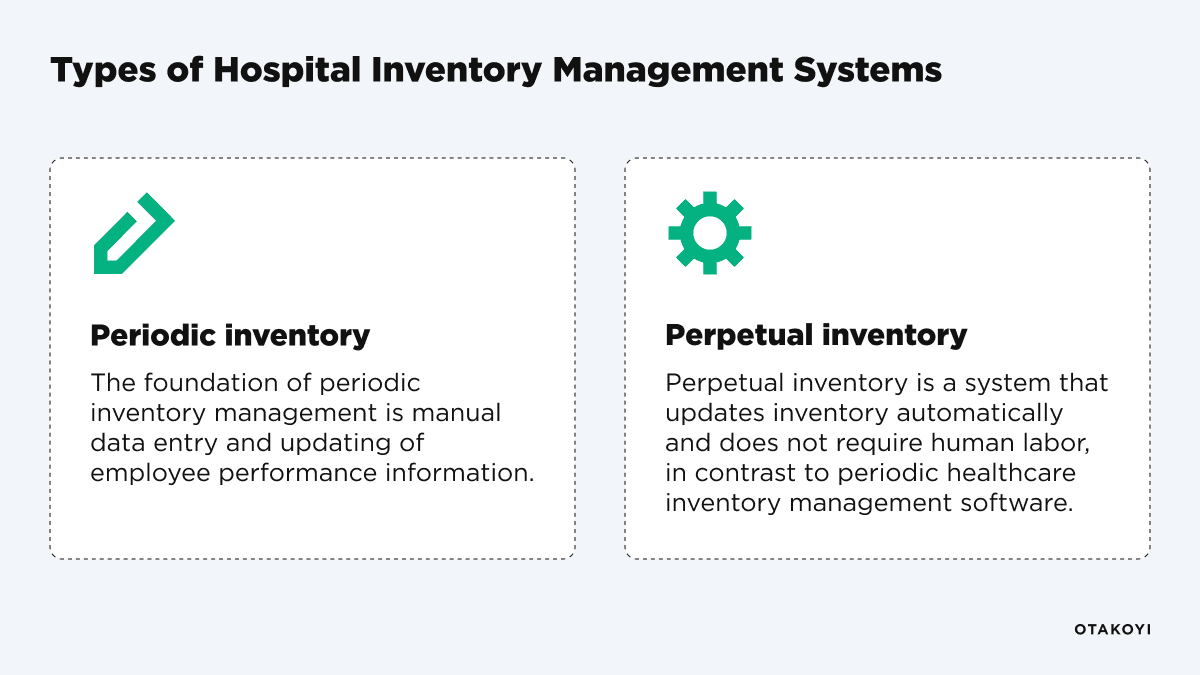
Periodic inventory
The foundation of periodic inventory management is manual data entry and updating of employee performance information. As implied by the name, inventory counts are performed periodically, usually every few weeks or so.
Larger organizations should not use this strategy, even though it works well for smaller healthcare facilities. Employees using this kind of medical inventory management software must manually update records pertaining to supplies and equipment.
Larger healthcare organizations must therefore use more sophisticated and automated management systems. It prioritizes accuracy. The mistakes that can occur from manual entry are one of the main disadvantages of periodic inventory management. It's an approach that requires them to perform manual labor, taking time away from more crucial duties.
Perpetual inventory
Perpetual inventory is a system that updates inventory automatically and does not require human labor, in contrast to periodic healthcare inventory management software. It can monitor medical assets and products using RFID technology and sophisticated software, which simplifies inventory management for healthcare facilities.
The benefits of using workforce software to improve hospital efficiency are incredible, despite the challenges involved in developing it. Therefore, if you are in the healthcare industry, it is among the best investments.
Systems for perpetual inventory management can keep track of deliveries, purchases, additions, and subtractions. Additionally, it enables facilities to maintain current inventory records.
Your staff will be less burdened by this automation platform, freeing them up to concentrate on patient care.
Essential Characteristics of a Healthcare Inventory Management System
There are some main features that an advanced healthcare inventory management system should have, and that’s what we are going to tackle in the next points of the article. Ready? Let’s find out!
Centralized inventory management
Hospital inventory management software should have integrated modules and centralize business inventory management. This is one of its key features. As a result, information can be distributed more easily from a single, central location. Additionally, it will guarantee cooperation and improved inventory management to ensure prompt access to them.
Prescription data in real time
Medical inventory management systems of today are renowned for providing top-notch features like data tracking and real-time data generation. Additionally, it will meet all operational requirements, primarily for pharmacy inventory systems. It is an automated system that will handle and receive prescription data, offer real-time analysis, and use integrated solutions to guarantee compliance.
Reporting of the business activities and operations
Inventory management reports are necessary if you want to improve hospital inventory management's effectiveness. The software of today is well known for creating perceptive language and for giving you precise information about the state of your inventory. Making critical decisions, cutting operational costs even further, raising productivity, and boosting profits all depend on these reports.
Automation
Possessing an inventory management system with an outstanding automation feature that lets you assign tasks to the system. Thus, it will help prevent the possibility of overlooking important details and further reduce errors. Additionally, it speeds up material management, increases productivity, and frees you up to focus more on other duties.

Considering Upgrading Your Healthcare Institution?
Contact usCompliance
Make sure the inventory management system you select for the healthcare industry conforms with all applicable regulations. You need a solution that can handle pharmacy workflow, multiple inventory management, and seamless integration with current healthcare systems.
Flexibility and customization
The ability to customize an inventory management system to meet your specific needs is one of the main factors that define how effective the system is. It should specify and modify each component in accordance with your needs to guarantee improved flexibility and inventory control.
Identification of the patient
Experts insist that as pharmacy inventory management systems become more sophisticated, they must be able to determine whether a patient qualifies for the program or not. When an individual submits a request for medication, the software needs to make sure they are eligible and emphasize that their request complies with all requirements.
Supply chain management
Predictive analysis should be utilized to its full potential by medical material management systems in order to produce precise forecasts. Utilizing cloud computing to its fullest potential in the healthcare industry allows hospitals to improve inventory workflows and communicate outcomes.
The opportunity to control user access and permissions
The healthcare inventory management software of your choice must allow you to alter accessibility and permissions. As a result, you will be able to take control of everything. Restricted access to designated inventory sections ensures that only individuals with permission can view and modify them. On a need-to-know basis, it will guarantee the security and integrity of your data.
Important Technologies Applied to Healthcare Inventory Management Software
After learning the basics of this software, let's take a closer look at how it operates. To do that, you need to be familiar with this tool's fundamental components.
Keep in mind that not every other service provider might be knowledgeable about all of these technologies. It is therefore advised that you look for professional enterprise software development services. This step will guarantee that every technology is matched and implemented in accordance with your business goals. Having said that, let's examine the essential elements needed to create cutting-edge software for healthcare inventory management.
RFID Tags
RFID (Radio-Frequency Identification) technology is the foundation of modern healthcare inventory management solutions. Every inventory item has an embedded RFID tag, which allows for automated tracking and data collection even in situations where there is no direct line of sight. By doing this, manual errors are eliminated, and real-time asset movement tracking within the healthcare facility is made possible.
RFID Readers
Modern RFID readers work alongside RFID tags. These readers gather important information from the tags and send it to healthcare inventory management software. By placing RFID readers in key locations, you can make sure you have full coverage for precise and real-time inventory updates.
EHR Integration
Our software's foundation is its seamless integration with electronic health records (EHR). Through integration with current healthcare systems, we enable a cohesive strategy for patient care. The seamless alignment of inventory data with patient records is ensured by EHR integration, which improves overall operational efficiency.
Cloud-based architecture
As previously mentioned, a strong cloud-based architecture powers the majority of healthcare inventory software. Because the cloud makes it possible to access real-time data from any location and enables remote management — which is essential for inventory operations — it is almost a requirement in the architecture of this tool.
And the finest aspect? If you want to look into a customized inventory management system for your healthcare services, you will have access to cloud integration services.
Mobile applications
Sophisticated inventory management systems work with tablets and smartphones. Staff members can manage inventory, track assets, and make educated and informed decisions even when they are far from the healthcare facility, thanks to the easy-to-use apps that offer real-time updates.
Barcode technology
Barcode technology should be included in state-of-the-art healthcare inventory management software. It facilitates the accurate and speedy identification of inventory items. How does it function? By scanning barcodes with portable devices, the probability of human error that happens as a result of manual data entry is minimized. Data accuracy is improved and inventory management is streamlined by barcode technology.
Healthcare Inventory Management Software's Business Benefits
#1 Cost-Effectiveness: lowered hospital inventory costs by putting inventory demand forecasting and medication usage cycle counting into practice.
#2 Streamlining Operations: Efficiency gains for a medical facility due to automated data entry using techniques like barcode or QR label scanning and rapid access to necessary hospital inventory.
#3 Stock Prevention and Inventory Management: Reduced the possibility of hospital stock-outs by using automated tracking systems and stock reports for pharmaceuticals and medical supplies.
#4 Reduction of Waste: Reduced medication waste by automatically keeping track of expiration dates and avoiding the needless disposal of past-due prescriptions.
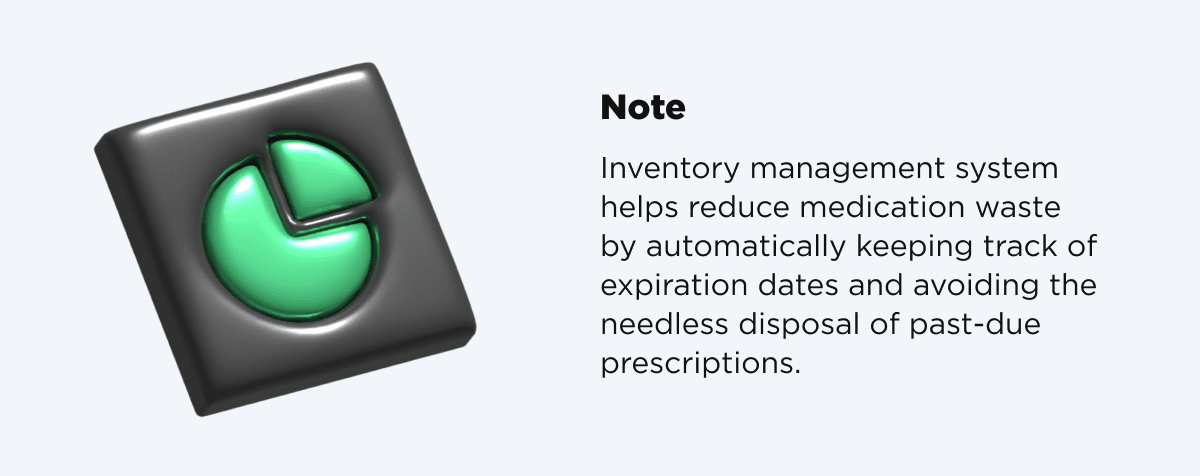
What Advantages Does Hospital Inventory Management System Offer?
Asset tracking
The healthcare inventory management software can be used to optimize and simplify the proper inventory management process and helps with accurate tracking. Because of this volatility, medical facilities' supplies and medical inventory are constantly shifting on a large scale. Inventory management tasks can be easily automated with this software, which also lessens the effort required from humans.
Minimizing inaccuracies, simple analytics, and preserving the supply
Stock and inventory management involves more than a single phone call or procedure. As such, it is a continuous process that lasts the entire year. When these tasks were carried out by humans, the outcomes required to be more precise, which resulted in incorrect stock management.
Error risk is reduced by using hospital inventory management software. Contracts for bulk purchases and all data will be handled precisely. As a result, when you decide to sell them, the stocks will be adjusted, and all orders will be synchronized.
Tracking in real time
You are able to track your inventory in real time with the help of a feature in your inventory software. As a result, it can update the data on a regular basis, giving you access to counted supplies whenever you add or sell items. Additionally, you can keep track of all inventory transactions and notify us when there is a shortage. Isn't it wonderful that you receive a notification in the event that your goods are delayed at the destination?
Cutting expenses and saving costs
For healthcare organizations, streamlining your inventory will help you cut expenses. It will assist you in producing accurate data and avoiding expenses associated with human error, such as medication waste. Initially, the inventory management system can assist you in adhering to the hospital's spending plan and even prevent supply shortages. Consider the fact that due to the Harvard Business Review, 50% cost reduction and 20% profit gain are possible when investing in an automated inventory management system.
It might also lessen the possibility of overdosing. Automation is the main benefit of hospital inventory management software, though. Overstocking and stock-outs cause enormous losses for a large number of hospitals and healthcare institutions. however, not after this program. The systems for managing inventories deserve all the praise.
Tackling the Challenges of Inventory Management in Healthcare
For medical facilities to operate efficiently, they should understand that inventory management is an integral part of the healthcare sector.
It entails the monitoring and administration of pharmaceuticals, medical equipment, and supplies, giving medical professionals the tools they need to provide patients with the best care possible.
Good inventory control in healthcare improves patient outcomes by fostering better communication, reducing theft, increasing productivity, and so on.
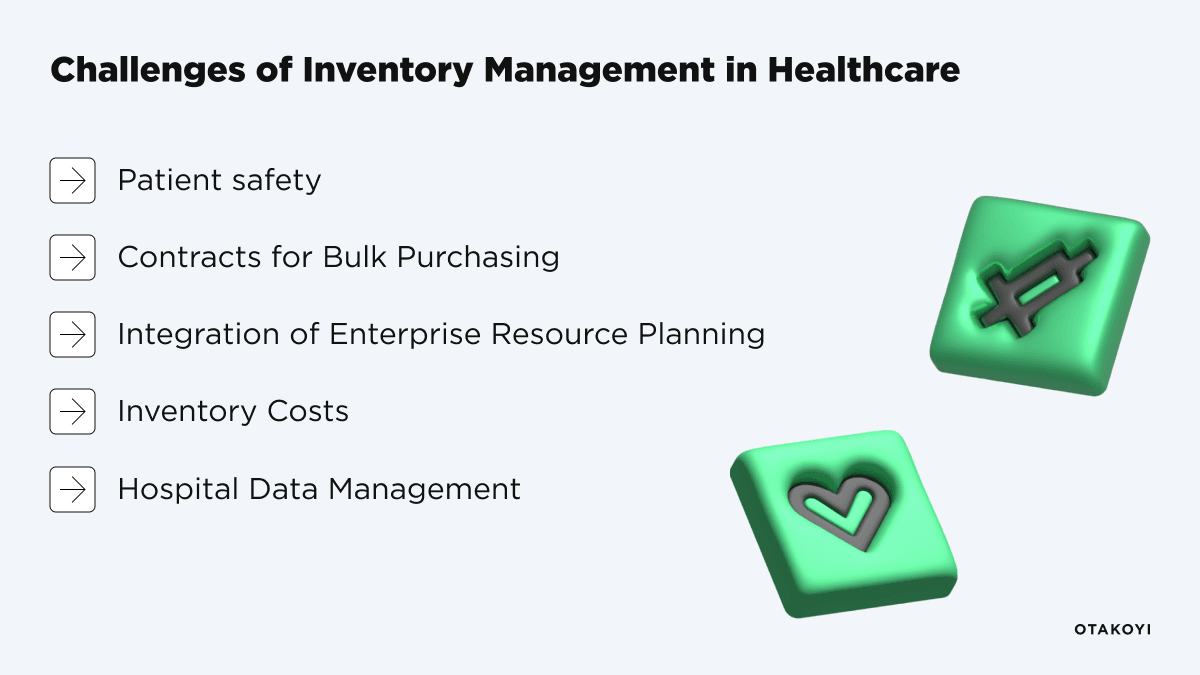
1st challenge: Patient safety
It is a top priority in healthcare, and inventory management has a direct impact on it. Critical shortages of necessary supplies can result from inadequate inventory, endangering patient care. For example, insufficient supplies of essential surgical equipment or drugs can cause treatment delays, raising the possibility of unfavorable results.
To protect patient welfare, healthcare administrators need to prioritize strict inventory management and acknowledge the serious consequences of these shortages.
2nd challenge: Contracts for bulk purchasing
Contracts for bulk purchases can be economical, but there is a chance that a healthcare facility will overstock or have outdated supplies. This increases the risk of waste, especially with perishable medical supplies, and ties up important financial resources.
Executives must carefully review these contracts to make sure they match real usage trends and prevent wasteful spending and inefficiencies.
3rd challenge: Integration of enterprise resource planning
The process of integrating an ERP (enterprise resource planning) system with a healthcare inventory management system is a critical but difficult task. Decision-making and operational effectiveness may be impacted by erroneous inventory tracking caused by inconsistent data on resource allocation between systems.
Healthcare executives need to stress how crucial seamless integration is to maintaining operational coherence and accurate real-time data.
4th challenge: Inventory Ñosts
Healthcare organizations must walk a tightrope in order to maintain the availability of critical supplies while keeping inventory costs under control. A surplus of inventory drives up expenses, while a shortage puts patient care in danger.
The financial ramifications are substantial, necessitating clever management to maximize inventory levels and guarantee cost-effectiveness without sacrificing care quality.
5th challenge: Hospital data management
Software for managing healthcare inventories must be powered by efficient hospital data management. Poor inventory decisions can have an impact on patient care and costs if they are based on outdated or inaccurate data. Maintaining ideal inventory levels, forecasting demand, and making purchasing decisions all depend on having access to accurate, real-time data.
Advanced healthcare inventory management software that provides thorough and precise data management capabilities should be given top priority by healthcare decision-makers.
It is imperative that leaders in healthcare address these issues. It necessitates taking preventative measures to guarantee ideal inventory management while striking a balance between budgetary restraints and the need to deliver top-notch patient care.
How OTAKOYI Can Help With Inventory Management Software Development for Healthcare?
At OTAKOYI, we know how crucial efficient inventory management is in healthcare. That's why we offer custom software solutions for healthcare industry designed to streamline your processes, minimize errors, and boost overall efficiency. Using cutting-edge technologies like RFID, cloud computing, and mobile apps, we ensure your inventory is always accurate and your healthcare supply chain runs smoothly. Work with OTAKOYI to transform your inventory management and improve patient care and operational success.
#1 Custom Solutions: Tailored software to meet your specific needs.
#2 Advanced Software: Incorporating RFID, cloud computing, and mobile apps.
#3 Efficiency Boost: Streamlined processes and error reduction.
#4 Real-Time Accuracy: Maintain precise inventory records.
#5 Improved Patient Care: Optimize operations for better patient outcomes.
Conclusion
Efficient inventory management is vital in healthcare, ensuring that supplies and medications are always available for patient care. Knowing the types of inventory management and all its benefits, you can make the right decisions for your hospital inventory management solution.
OTAKOYI offers tailored solutions using advanced technologies like RFID and cloud computing to streamline inventory management processes, reduce errors, and enhance operational efficiency. Partner with OTAKOYI to transform your inventory management, improve patient outcomes, and achieve operational success.
